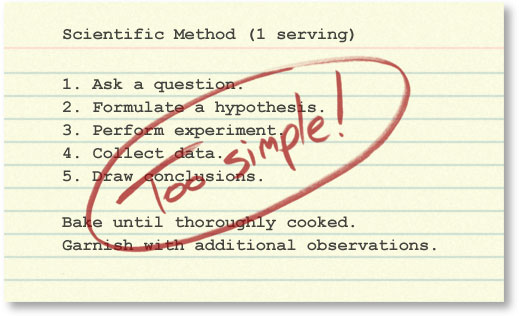Science is an inspiring process of discovery that helps satisfy the natural curiosity with which we are all born. Unfortunately, traditional instruction that misrepresents science as a body of facts to be memorized and the process of science as a rigid 5-step procedure can deaden students’ spirit of inquiry.
Students should come away from our classrooms with an appreciation of the natural world — fascinated by its intricacies and excited to learn more. They should view and value science as a multi-faceted, flexible process for better understanding that world. Such views encourage life-long learning and foster critical thinking about everyday problems students face in their lives. You can cultivate these ways of thinking in your students through science instruction that accurately and enthusiastically communicates the true nature of science and that encourages students to question how we know what we know.
Fortunately, fostering such understandings needn’t require reorganizing your entire curriculum. Simple shifts in how content and activities are approached can make a big difference in overcoming student misconceptions and building more accurate views of the process of science. Educational research supports the following strategies for teaching about the scientific endeavor:
- Make it explicit: Key concepts regarding the nature and process of science should be explicitly and independently emphasized. Engaging in inquiry and studying the history of science are most helpful when the nature-of-science concepts they exemplify are explicitly drawn out in discussion and interactions.
- Help them reflect: Throughout instruction, students should be encouraged to examine, test, and revise their ideas about what science is and how it works.
- Give it context, again and again: Key concepts about the nature and process of science should be revisited in multiple contexts throughout the school year, allowing students to see how they apply to real-world situations.
We’ve assembled a variety of resources to help you increase student understanding of nature and process of science. To improve your own content knowledge, explore Understanding Science 101. To gear up for teaching, explore the following sections:
- Prepare and plan: Sort out your teaching goals, review common student misconceptions, and bone up on research-supported pedagogical strategies.
- Find lessons and tools: Search for lessons and activities, explore our interactive journalling tool, get graphics and visual guides, and more.
- Teaching guides: Get grade-level specific recommendations for teaching the nature and process of science.
- Educator voices: Hear how teachers and other educators are using Understanding Science resources.

